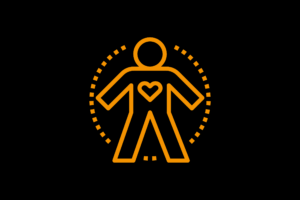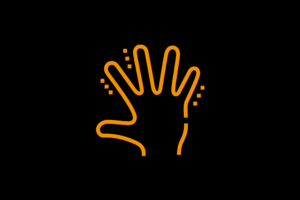Because people can’t see that our brains are wired differently, we are often massively misunderstood. Society is also set up by and for neurotypical brains, as they are the majority, which often puts us at a disadvantage.
There are quite a few common difficulties we face as autistic people, and we would like to share some with you so you know you aren’t alone if you struggle with these too (all quotes are from autistic people):
“When in public I usually fidget and stim due to being anxious and I get lots of weird comments and stares.”
People often react negatively to things they don’t understand, so in some places and spaces, you may be judged for acting differently.
Rather than trying to fit in, what matters is finding people and places who accept you as you are, and who you can be yourself around (though it might take a bit of time and work to find them).
“People don’t realise how harmful misinformation can be.”
Most people don’t know what autism is, so they believe quite a few myths!
It is very common to be told things that aren’t true, such as “anxiety is part of autism” (it’s not!) and that you “need to learn to fit in” (you don’t!).
Even the diagnostic criteria for autism isn’t very helpful. The criteria focuses mainly on struggles and views autism as a negative thing, rather than also recognising the positives being autistic brings.
The misunderstanding probably happens because most people are diagnosed when they are struggling, so can have symptoms of anxiety, depression, trauma and more, as well as traits of autism. If people don’t fully understand what autism is, they can assume these difficulties are part of autism and that you will just struggle forever (this is not true!).
When all of your difficulties/symptoms/traits are grouped together as “autism”, this is called “diagnostic overshadowing”. This is really frustrating as it stops autistic people from getting the right support for their co-occurring conditions.
“I was told I am destined to have extreme anxiety for my whole life by professionals who said it is part of autism. I later learned they were talking nonsense.”
“Being autistic is not wrong.”
When non-autistic people find themselves in an autistic space they can feel just as out of place and struggle to fit in as we can in other places. What we learn from spaces like Spectrum Gaming is that autistic people aren’t wrong or disordered, they are just different. Different behaviours don’t need to be corrected, and trying to correct them is actually harmful to autistic people. We don’t need to give eye contact or do small talk if it makes us feel uncomfortable. In fact, it is pretty normal for some autistic people to not do these things.
“We don’t need to fit in.”
There needs to be a shift in focus from how society expects that you ‘should’ be, and more to being how you want to be in a way that makes you happy and works for you. Suppressing and hiding who you truly are can be exhausting and create feelings of isolation which can lead to mental health difficulties. Being autistic means you need to live a life that is different to most people, but this life can still be a very happy one!
“when my class found out I had autism they started treating me differently”
Unfortunately, it’s not always OK to be openly autistic. As an adult, you have more freedom to choose who you interact with, so if someone doesn’t understand or accept you, you don’t need to waste any time being around them. Things can be harder when you are a young person and unfortunately some people are very judgemental of differences. If people judge you negatively when you tell them you are autistic, it is probably because they don’t understand it.
Other times when you tell people you are autistic, they can start talking to you differently. Some people seem to think they need to talk really slowly or loudly for you to understand, or use very simple language and treat you like a toddler. This still happens to me, and I am 26!!!



